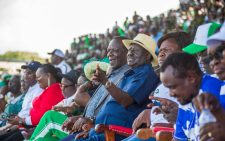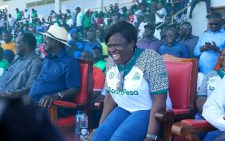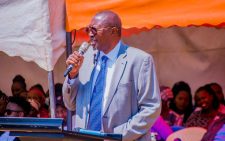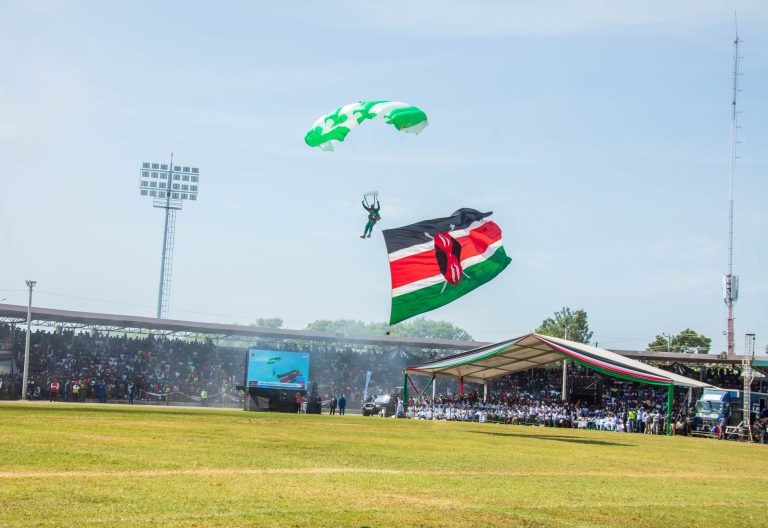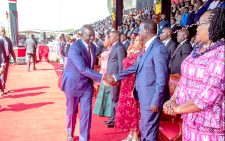We must raise threshold for hiring of IEBC chiefs
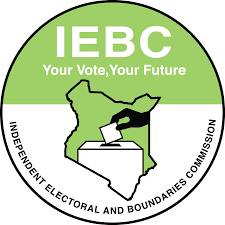
Former polls chief Issack Hassan slept at the Bomas of Kenya on the night before he was to announce the 2013 presidential election results. His security team had to arrange for bedding from his house.
Their guns remained cocked through the night outside the lounge where he slept. His accounts of the intrigues leading to the declaration of Uhuru Kenyatta as winner of the polls against Raila Odinga and subsequent events that resulted in his exit from the position is a valuable lesson on the intricate task of election management in a highly polarised society.
The number of phone calls to the polls chief, the numerous vested interests that demand to be heard and influence the direction of elections is mind-boggling. William Ruto calls to register reservations about a certain pronouncement, Uhuru has been incessantly calling on an unknown number, Raila dispatches Anyang Nyong’o with a list of demands and follows them with a call through a proxy journalist as he eavesdrops.
You can read the rest of the story in Hassan’s memoir, Referee of An Ugly Dirty Game that has hit bookshops near you.
Hardly will the chairman of the National Cohesion and Integration Commission or that of the gender commission sleep with cocked guns outside their room. But that is not the subject of this conversation.
The suspicions, divisions that led to the implosion of the Hassan commission and the IEBC reconstitution mirrors the ugly scenario displayed by the Wafula Chebukati team that is now the subject of an emotive debate following its conduct of the last General Election.
It has always been argued that the IEBC is the mother of the Chapter 15 commissions. It is a special team with a critical role in the promotion of democracy and constitutionalism.
Decisions made by the agency and competing political interests are blamed for the unfortunate events after the 2007 General Election that brought the country to the brink.
A section of commissioners in the team that was led by the late Samuel Kivuitu disowned the election results, emboldening and helped validate opposition claims that they had been robbed of their victory.
Their pronouncements and conduct effectively made the commissioners actors in a political conflict which they had been mandated to referee with dangerous consequences to national stability and the integrity of the polls.
In a similar fashion, four IEBC commissioners, including the vice-chairperson, disowned the declaration of President Ruto as the winner of the last General Election and even supported petitions against their commission at the Supreme Court.
President Ruto and Raila have formed a team to discuss the reconstitution of the new IEBC following the retirement of Chebukati and exit of commissioners in controversial circumstances.
Given the magnitude of the constitutional burden placed on the IEBC and conduct of the Kivuitu and Chebukati-led commissions, Kenyans must re-think the process of its hiring and the quality of the agency’s manpower.
Without appearing to belittle the other equally important constitutional commissions, there is merit in the argument that the threshold on qualifications for the IEBC should be raised and scope of considerations widened.The IEBC leadership demands more ethical spine, maturity not just book scholarship and the usual lawyering. There is a demonstration that the current recruitment process has not yielded people with the intellectual stamina, managerial experience, political, historical and social awareness and a devotion to the spirit of constitutionalism required to lead the electoral body.
It ends up staffing the IEBC with retired ambassadors, failed academicians, average lawyers, NGO-bred policy activists, nursery school teachers, political rejects and out-of-touch diaspora seeking to a way back home.Then we return to grumbling after every five years.
As usual, we don’t seem to have learned our lessons. It is time for Kenyans to have a candid discussion on whether the recruitment of IEBC by a politically- shepherded group of individuals opaquely nominated by various bodies only accountable to their membership is the right way to go.For instance, what is the level of scrutiny that went into the composition of the current IEBC selection panel? That is where the rain starts beating us. IEBC should not be meant for meek souls.
—The writer is the Political Editor at People Dailyemekamayaka@gmail.com
